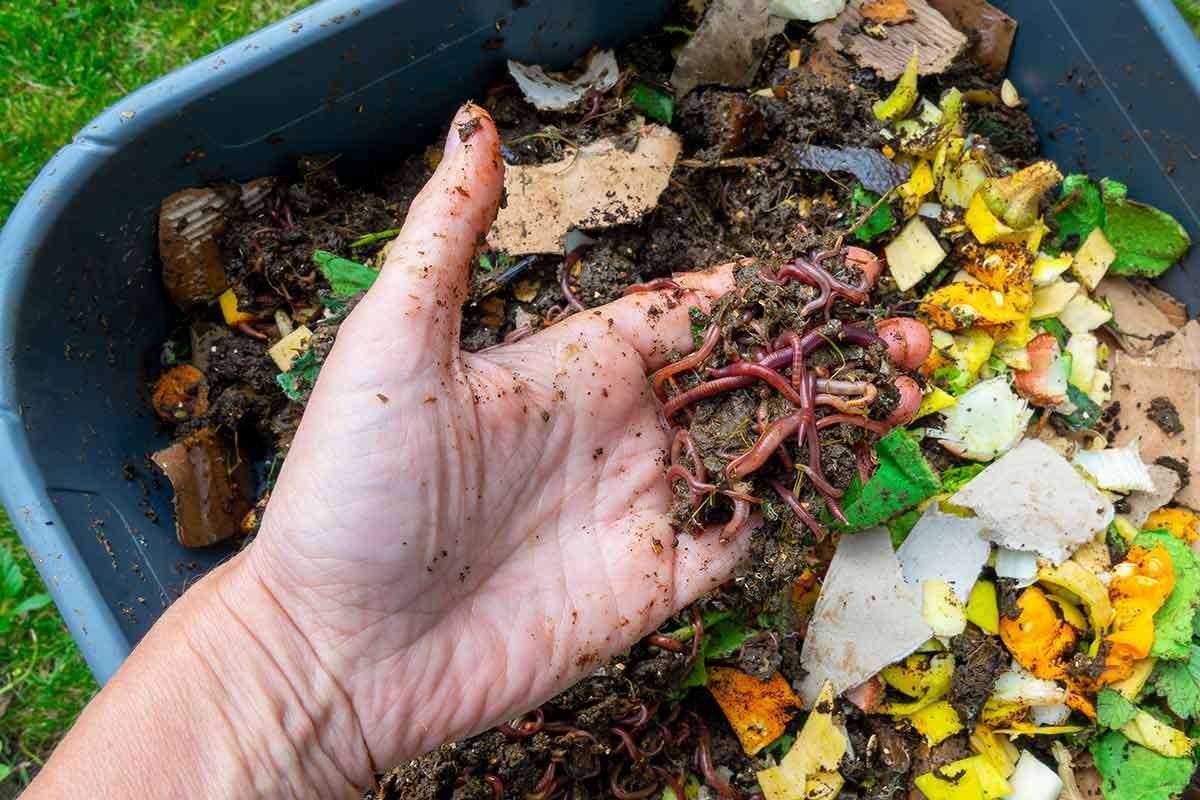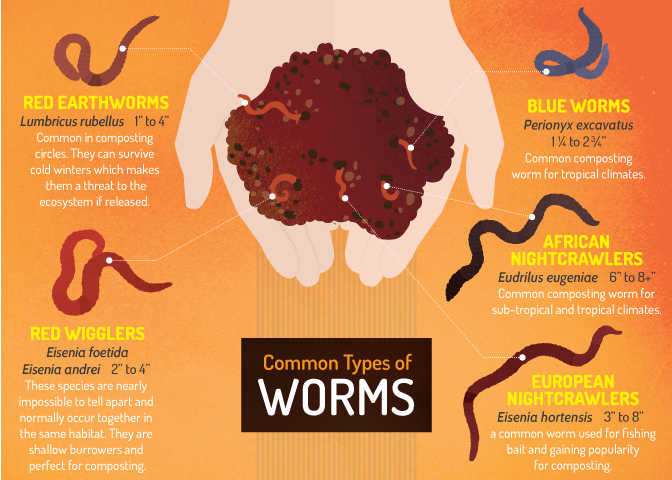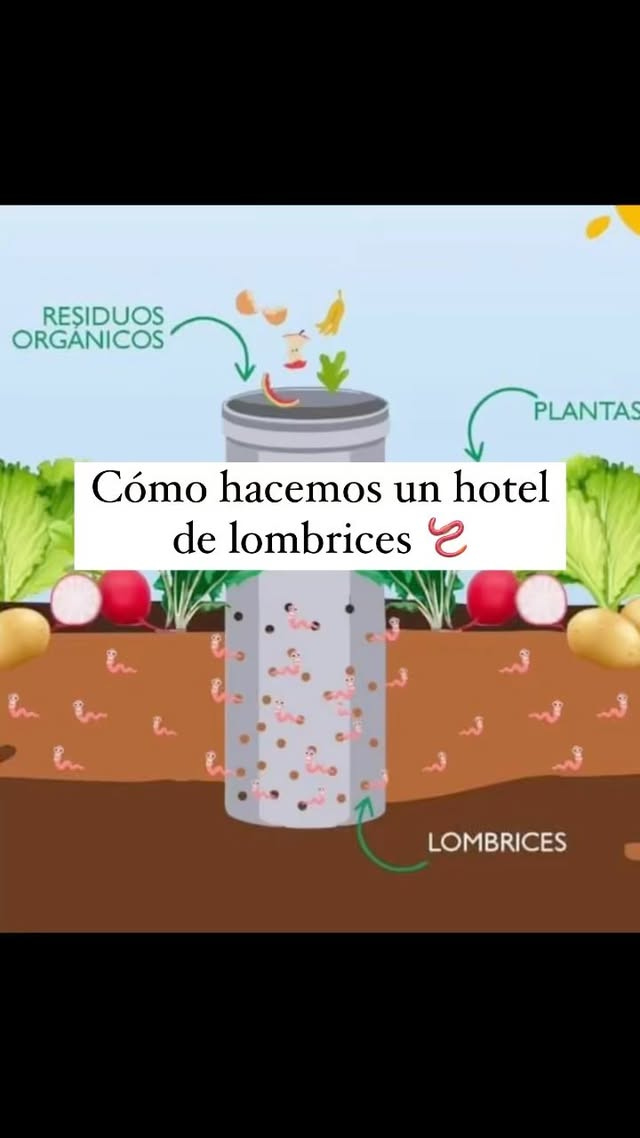
What is worm composting? 🪱
Worm composting, or vermicomposting, is a great way to compost and 'get rid' of food waste at home and in small spaces. The worms eat your organic waste, digest it through their gut, and poop it out. The fancier term for worm poop is worm castings, which are full of beneficial microbes from the worm's gut. There are many different ways to do worm composting at home, whether it be indoors or outdoors in the garden or concrete patio.
Worm composting is great because this technique produces compost faster than a compost pile. You can then make vermicompost tea (check out this great resource on how to make vermicompost tea) as liquid fertiliser or simply mix the vermicompost in with your potting soil or garden soil.
Will any worm do?
Unfortunately, no.
While earthworms are great at burrowing and have the important role of aerating soil, they don't eat quite as fast as other species of worms that are great decomposers. Out of about 9000 worm species, 7 or so of them make wonderful composters.
The Red Wiggler Worm (Eisenia fetida): They are one of the best and most efficient worm species for vermicomposting because they can eat as much as half of its weight on a daily basis. Not only do they produce high quality compost, they also reproduce quickly. Every 6 months, they produce two new generations and it's recommended not to move our disturb them the first 6 months, so they have ample time to eat and reproduce without stress.
The Blue Worm (Perionyx excavatus), also known as the traveling worm or the India blue worm, is native to the tropical parts of Asia.
The African Nightcrawler (Eudrilus eugeniae) is a tropical worm that can withstand higher temperatures when given enough moisture.
The Jumper worm (Anymthas gracilis) is a long worm that works well in tropical and subtropical regions.

What to look out for
Generally, it's not recommended to compost meat, bones, cooking oils, salt, and eggshells with worms.
Meat and bones: It's not that worms don't eat meat; they just take a very long time to do so. Meanwhile, the meat gets rotten and attract pathogenic microorganisms that could harm the health of the worms and the worm bin.
Cooking oils: Too much cooking oil could coat the worms and impair their breathing, since they breath through their skin.
Salt and eggshells: Salt dehydrates them and eggshells cut their delicate bodies.
It's recommended to pre-compost (Bokashi or bin method) the food waste before giving it to the worms. That way they can break it down much faster.
Chop the food waste up into pieces no bigger than 20 cm length/width.
Feed them about once a month. Check on them to see how fast they're eating. If you go away on vacation, make sure someone comes to feed them.
If you see worms balling up, it means they're stressed. Something's off. Common reasons could be that they need more moisture and humidity or they're not being fed enough.
Examples of worm composting structures
There are as many ways to make worm composting work for you as there are creative humans on this planet because people who compost are scrappy, resourceful, and imaginative. Here are some helpful examples to get you started. As you start doing it yourself, you'll start adapting and improving the system to make the lives of your worms better and happier.



